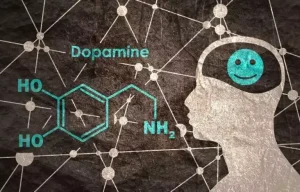
If you struggle to sleep, talk to your doctor about solutions that might help. While giving up alcohol can be a challenge, it’s important Alcohol Detox to remember that the benefits are well worth it. A community of understanding and empathetic people can help you recover.

Signs of an Alcohol Problem
It can help someone handle withdrawal symptoms and emotional challenges. Outpatient treatment provides daily support while allowing the person to live at home. This article discusses alcohol withdrawal, its symptoms, and potential complications. It also provides an overview of the alcohol withdrawal timeline process and when to discuss your drinking with your healthcare provider.
What is the prognosis for someone with alcohol withdrawal?
People often need to address past trauma or familial issues during this time. Since withdrawal symptoms tend to ebb and flow, you may be tempted to feel like you’re not making progress ― even though in reality, you’ve come a long way. That said, there are four general stages of recovery, as compiled by addiction expert Steven M. Melemis, MD. These stages can help prevent relapse and support people to live healthier, fuller lives. Recovery from alcohol addiction generally follows the stages of abstinence, withdrawal, repair, and growth. Avoid people who may encourage you to drink alcohol or may not support your decision to stop.
Treatments Led by Health Care Providers
Your liver can start to heal, your risks of heart disease and cancer go down, and you may begin to sleep better. Some people who stop drinking may experience delirium tremens (DT). This condition is serious and may lead to symptoms such as high blood pressure, https://ecosoberhouse.com/ tremors, and seizures. At this point, your risk of developing all types of disease will be reduced and your bone density will start to increase. Keep in mind that everyone is different and will experience different things when they stop drinking.

It’s important to be honest about your alcohol use — and any other substance use — so your provider can give you the best care. Alcohol (ethanol) depresses (slows down) your central nervous system (CNS). If you consistently consume significant amounts of alcohol, your CNS gets used to this effect. Your CNS must work harder to overcome the depressant effects of alcohol to keep your body functioning.
What is Alcohol Withdrawal Syndrome (AWS)?

If identified and treated early, someone with an alcohol addiction may be able to avoid major consequences of the disease. It can cause changes to the brain and neurochemistry, so a person with an alcohol addiction may not be able to control their actions. During the recovery stage, it’s not uncommon to feel temporarily worse.
If you drink only once in a while, it’s unlikely that you’ll have withdrawal symptoms when you stop. But if you’ve gone through alcohol withdrawal once, you’re more likely to go through it again the next time you call it quits. If you drink alcohol heavily for weeks, months, or years, you may have both mental and physical problems when you stop or seriously cut back on how much you drink. Tap into your social network to help support you through alcohol withdrawal.
- Some people drink heavily all day, while others binge drink and then stay sober for a while.
- The higher the number, the worse a person’s symptoms are and the more treatments they likely need.
- Withdrawal symptoms can quickly go from a bad hangover to a serious medical situation.
- Detoxing from drugs or alcohol without professional help is known as a self-detox.
- You may also consider joining an online support group to help you feel less alone.
- Currently, there are three medications approved for AUD in the United States, and they are an effective and important aid in the treatment of people with this condition.
- This means that if you complete 90 consecutive days at an AAC facility and experience a relapse after graduation, you are welcome back for a complimentary 30 days of treatment.
- More often, people try to quit or cut back over time, experience recurrences, learn from them, and then continue on their recovery journey.
It may also be helpful to determine whether the treatment will be adapted to meet changing needs as they arise. Currently, there are three medications approved for AUD in the United States, and they are an effective and important aid in the treatment of people with this condition. Ultimately, there is no one-size-fits-all solution, and what may work for one person may not be a good fit for someone else.

In this article, we will explore the answers to these questions and other common concerns people face when they are considering alcohol detox. By Sarah Bence, OTR/LBence is an occupational therapist with a range of work experience in mental healthcare settings. Millions of people join support groups to help stop drinking and stay stopped. Studies show support groups play an instrumental role in helping people develop healthy social networks that result in continued sobriety. Alcohol withdrawal symptoms range from mild but annoying to severe and life-threatening.
